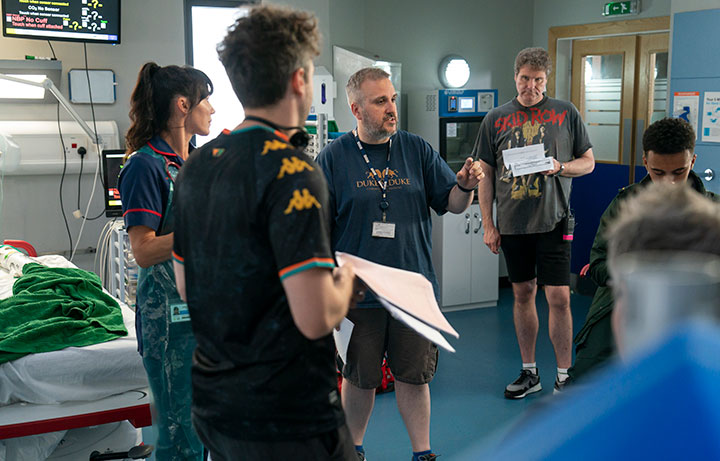Screen acting is a craft that demands a unique blend of talent, technical ability, and emotional intelligence. For those looking to enhance their skills, a comprehensive understanding of the fundamentals is crucial. Here are some essential considerations for delivering a well-rounded performance, all of which are covered in our new Level 1: Building Blocks of Performance course.
1. Understanding the Script
A thorough understanding of the script is paramount. You need to delve deep into their characters’ motivations, backgrounds, and relationships. This helps in delivering lines with authenticity and ensures that the performance is rooted in the story’s context. Even the smallest parts demand an actor knows why they’re saying the words presented to them. Being able to provide variations of a delivery can be achieved when an actor truly understand their intentions; a vital skillset for those looking to make an impact on a job or in an audition.

2. Mastering Physicality and Movement
Screen acting is not just about delivering lines; it’s also about how you can use your body to communicate non-verbally. Understanding body language, facial expressions, and movement can significantly enhance a performance. Our Building Blocks of Performance Course emphasises the importance of physicality and provides practical training to help you use their bodies effectively on screen. It’s important you understand which techniques to use depending on the shot and space you have available.
3. Vocal Control and Diction
Clear and expressive speech is crucial for screen acting. You must ensure their dialogue is not only audible but also delivered with the right intonation and emotion. Your voice is a muscle and it has to be exercised to ensure it’s well maintained. Learning more about your voice, flaws in your speech and ways to overcome them, whether it’s before an audition or when you step onto set.
4. Reacting and Listening
Acting is as much about reacting as it is about acting. Authentic reactions can make scenes more believable and engaging. This involves active listening and responding naturally to other actors. You must be able to remain present and hold an ability to react depending on what other cast members may present to you. When working with more experienced actors, they may choose to improvise parts of a scene, so when this occurs you should have an active participation into what’s happening so you can keep a take and performance alive. Director Sue Dunderdale specialises in improvisational methods and introduces some fundamental techniques in our upcoming Level 1 Course.
5. Camera Awareness
Understanding how to perform for the camera is a unique aspect of screen vs stage acting. This includes knowing how to use camera angles, managing eye lines, and adjusting performances for close-ups versus wide shots. The Building Blocks of Performance course offers insights into working with the camera, helping you adapt performances for different types of shots.
6. Consistent Practice and Feedback
Continuous practice and constructive feedback are essential for growth. Without practicing a skill it can weaken and become rusty. As a screen actor it’s vital you maintain your skillset through reading, analysing and ultimately performing! Our various screen acting courses offer a chance for you to gain genuine feedback from industry professionals and a place to take risks and make mistakes, saving you from making them when you’re on a job.



